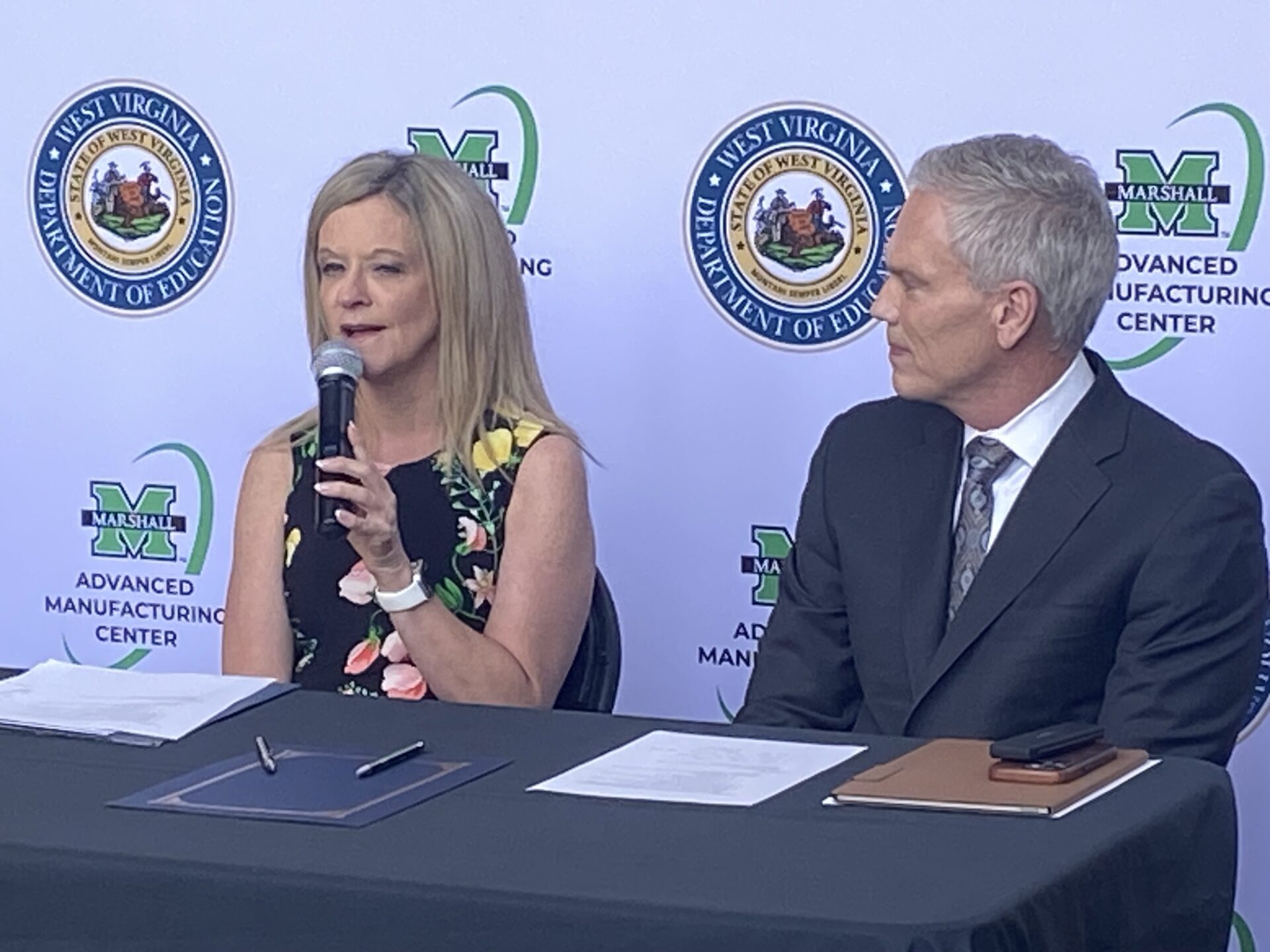There is a public-private effort underway to give West Virginia high school students enhanced career training, strengthen the talent pipeline for Mountain State industries and improve the state’s workforce participation rate.
For several years, the West Virginia Department of Education’s Classroom2Careers initiative has helped high school students gain practical work experience in various trades and industries through apprenticeship opportunities. Separately,Marshall University’s Advanced Manufacturing Center (MAMC), trained nearly 1,000 manufacturing workers and did projects with 324 companies last year.
Now, a partnership between these two entities creates pre-apprenticeship vocational training. MAMC Director Derek Scarboro said aligning manufacturing trade programs at the state’s Career Technical Education (CTE) programs to registered apprenticeships will streamline career pathways.
“We’re going to help build those connections between the industry and the schools,” Scarboro said. “When these high school students finish these pre-apprenticeship programs, they’re going to be able to become very, very attractive employees to these companies that are doing registered apprenticeships, and they’re going to be able to enter those at a jump started level.”
About 2,000 students across West Virginia will be eligible to earn pre-apprenticeship credits. The state’s CTE centers currently offer 77 eligible training programs including fields such as welding, robotics and aviation maintenance. State Superintendent of Schools Michele Blatt said the program gives high schoolers real world job experience early on.
“It gives them the opportunity to save time and money as they move forward and graduate,” Blatt said. “Anytime we can have our students engaged in real world learning with hands-on opportunities the better.”
Diana Barnette operates Logan County’s Mining Repair Specialists, now expanding into parts manufacturing. She said the pre-apprenticeship program will help keep home grown talent working in West Virginia.
“It’s been difficult over the years,” Barnette said. “I think we lost a generation of tradesmen, and we lost a generation of well, machinists, welders, mechanics. The vo-tech center all along has tried and tried and tried, but the industry has changed. Now it’s all computers and technology. We have to change with it, and I think this is one of the first steps to get everybody where we need to be. We will be competitive.”
All parties involved, including Marshall University President Brad Smith, believe this education-manufacturing partnership is a major step forward for workforce development.
We want students who don’t choose to go to a college, but instead want to come out and participate in a high paying manufacturing job, to have that same opportunity,” Smith said. “There are almost 500,000 jobs in the nation right now that need manufacturing. Some estimate that could be as high as 2 million in the next five years. There are a lot of opportunities for our students to go out, put their hands to work and help advance this nation.”
Much of the funding for the partnership comes from a $7.1 million federal Department of Labor, Office of Apprenticeship Grant.
